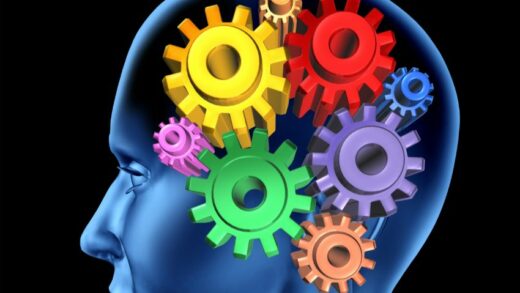Cognitive-behavioral therapy (CBT) is a form of talk therapy that has been proven effective in treating a wide range of mental health conditions. It works by identifying and changing negative thinking patterns and behaviors that can contribute to anxiety, depression, and other mental health problems. Unlike other types of therapy, CBT is usually short-term and focused on specific goals.
In this article, we’ll explore the ins and outs of cognitive-behavioral therapy. We’ll discuss how it works, what to expect during a session, its benefits, and some frequently asked questions about this popular form of therapy.
What is Cognitive-Behavioral Therapy?
Cognitive-behavioral therapy is a type of talk therapy that focuses on changing negative thinking patterns and behaviors. It is based on the idea that our thoughts, feelings, and behaviors are all interconnected, and that changing any one of these can have a positive impact on our mental health.
During a CBT session, a therapist will work with you to identify negative thoughts and behaviors that may be contributing to your mental health problems. They will then help you develop new, more positive ways of thinking and behaving. This can include things like relaxation techniques, problem-solving strategies, and goal-setting.
How Does Cognitive-Behavioral Therapy Work?
CBT is usually short-term, typically consisting of 12-16 sessions. During each session, you’ll work with a therapist to identify negative thinking patterns and behaviors that may be contributing to your mental health problems. Your therapist will then help you develop new, more positive ways of thinking and behaving.
One of the key principles of CBT is that our thoughts, feelings, and behaviors are all interconnected. By changing any one of these, we can have a positive impact on our mental health. For example, if you’re feeling anxious, your therapist may help you identify the negative thoughts that are contributing to your anxiety. They may then help you develop more positive, realistic thoughts that can help you feel less anxious.
What Are the Benefits of Cognitive-Behavioral Therapy?
Cognitive-behavioral therapy has been shown to be effective in treating a wide range of mental health conditions, including:
- Anxiety disorders (such as generalized anxiety disorder, panic disorder, and social anxiety disorder)
- Depression
- Post-traumatic stress disorder (PTSD)
- Obsessive-compulsive disorder (OCD)
- Eating disorders
- Substance abuse disorders
- Bipolar disorder
- Schizophrenia
In addition to treating these conditions, CBT can also help improve overall mental health and well-being. It can help you:
- Identify and change negative thinking patterns and behaviors
- Develop coping skills to deal with stress and difficult situations
- Improve self-esteem and confidence
- Improve relationships with others
- Reduce symptoms of mental health conditions

FAQs:
Is cognitive-behavioral therapy right for me?
Cognitive-behavioral therapy can be helpful for many people with mental health problems. It is particularly effective for those who are willing to actively participate in therapy and are open to changing their thoughts and behaviors.
How long does cognitive-behavioral therapy take?
Cognitive-behavioral therapy is usually short-term, typically consisting of 12-16 sessions. However, the length of therapy can vary depending on your individual needs and goals.
What happens during a cognitive-behavioral therapy session?
During a CBT session, you’ll work with your therapist to identify negative thinking patterns and behaviors that may be contributing to your mental health problems. Your therapist will then help you develop new, more positive ways of thinking and behaving. This may include things like relaxation techniques, problem-solving strategies, and goal-setting.
How effective is cognitive-behavioral therapy?
Cognitive-behavioral therapy has been shown to be effective in treating a wide range of mental health conditions. Studies have found that it can be as effective as medication in treating depression and anxiety disorders, and it may have longer-lasting effects.
How can I find a cognitive-behavioral therapist?
You can ask your primary care physician for a referral to a cognitive-behavioral therapist, or you can search for a therapist online. Make sure to choose a licensed therapist who has experience with CBT.

Conclusion:
Cognitive-behavioral therapy is a powerful tool for improving mental health. It works by identifying and changing negative thinking patterns and behaviors that can contribute to anxiety, depression, and other mental health problems. If you’re struggling with a mental health condition, consider talking to a therapist about cognitive-behavioral therapy. It could be just what you need to start feeling better and living a happier, more fulfilling life.
In conclusion, cognitive-behavioral therapy is a well-established and evidence-based approach to treating a variety of mental health conditions. It is effective, efficient, and widely available. It has been shown to be as effective as medication in treating certain conditions, and it can often be completed in a shorter amount of time. It is also a collaborative approach, meaning that you are an active participant in your own treatment.
If you are considering cognitive-behavioral therapy, it is important to find a licensed therapist who has experience with CBT. You can ask your primary care physician for a referral, or you can search for a therapist online. Be sure to ask questions and do your research to find a therapist who is the right fit for you.
Overall, cognitive-behavioral therapy can be a life-changing experience for those who are struggling with mental health conditions. By changing negative thought patterns and behaviors, you can learn to manage symptoms, improve relationships, and live a happier, more fulfilling life.






















